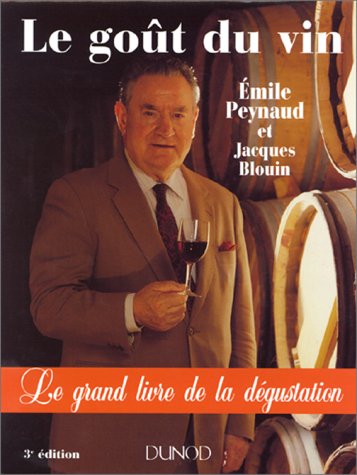Dear Drinker
“To the amateur: You, dear drinker, are the most important link in the chain. You pay for the wine, you support the winegrowers, you cheerfully help consume what we produce. Whether you are a seasoned toper, an occasional bibber, or preferably, an enlightened amateur, you find food for thought in this book.”
Emile Pey naud, “The Taste of Wine,” 1983
naud, “The Taste of Wine,” 1983
I have just finished my fifth year of wine classes. Soaring light years past tasting varietals I never even knew existed, learning about wine has uncorked a universe through liquid.
To study the vine and wine is to walk through a history filled with turf wars, traditions, and political machinations. Supply and demand and the magic of diurnal swings. Cultural ethos, individual prejudices and perceptions. Frame error, fashion and failure. Chemistry and other mysteries.
What’s been most illuminating out of all these chapters in wine’s story is the genius that is Emile Peynaud.
Peynaud, a professor at the Bordeaux Institute of Oenology who passed away in 2004, wrote “Le Goût du Vin,” or “The Taste of Wine,” the seminal work on the art and science of how to taste wine. Translated into English in 1987, we used his book in my Advanced Sensory Analysis class.
As I studied furiously for weekly quizzes and searched for answers to sometimes 50-question homework assignments, many of Peynaud’s nuggets of brilliance screamed at me to stop, reread, record.
Stop. Reread. Record.
The wine you drink is the wine you deserve. It is up to the consumers to discourage bad winemaking: The quality of wine will improve when they make up their minds to drink better quality wine and when they are also prepared to pay for that extra qualtiy.
What makes wine good, great or even bad, and to how to train yourself to taste the difference, is the main theme running though Peynaud’s jargon-free, metaphorical and sometimes humorous prose.
Wine can enthrall all, he assures us, all we need to do is pay attention.
In Pondering Peynaud, I share all of the Stop, Re-Read, and Record writings and explain how they have helped me fill the Grand Canyon-wide chasm between what I thought I knew about wine and what I know now.
But there is still much to learn.
So much like retasting a wine to concentrate on its texture and mouthfeel rather than its fruit profile or acidity, I revisit Peynaud in the hopes of discovering more dimensions of his brillance during my next phase of self-directed learning.
I hope that by offering my reflections, I can help fellow oenophiles who haven’t read or can’t find his out-of-print text continue to learn alongside me.
Because if wine is about anything, isn’t it the joy of sharing?
Pondering Peynaud Post #1: “Drink less but be fastidious in your choice; every time you purchase an inferior bottle, you compromise the reputation of good wine in general.”